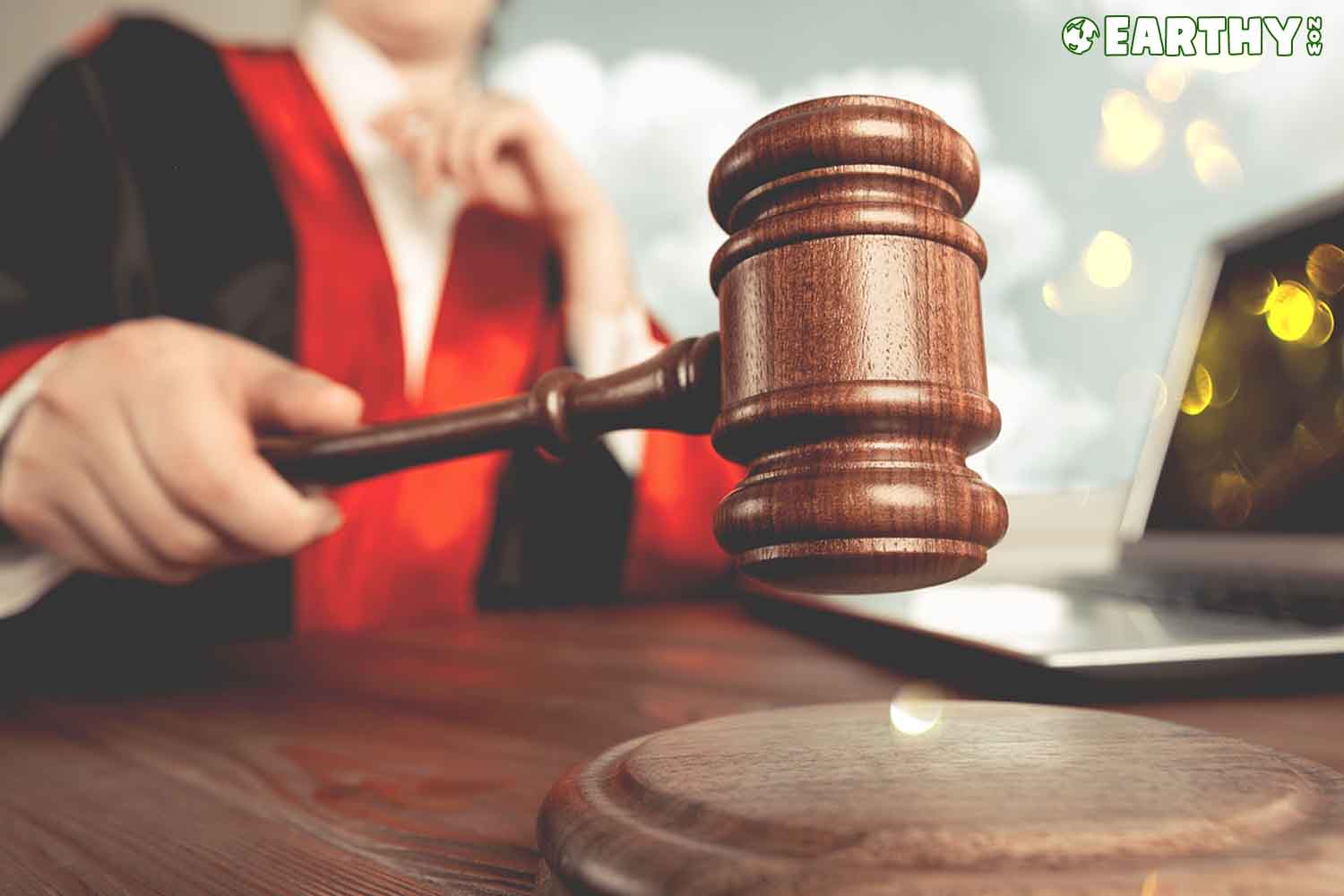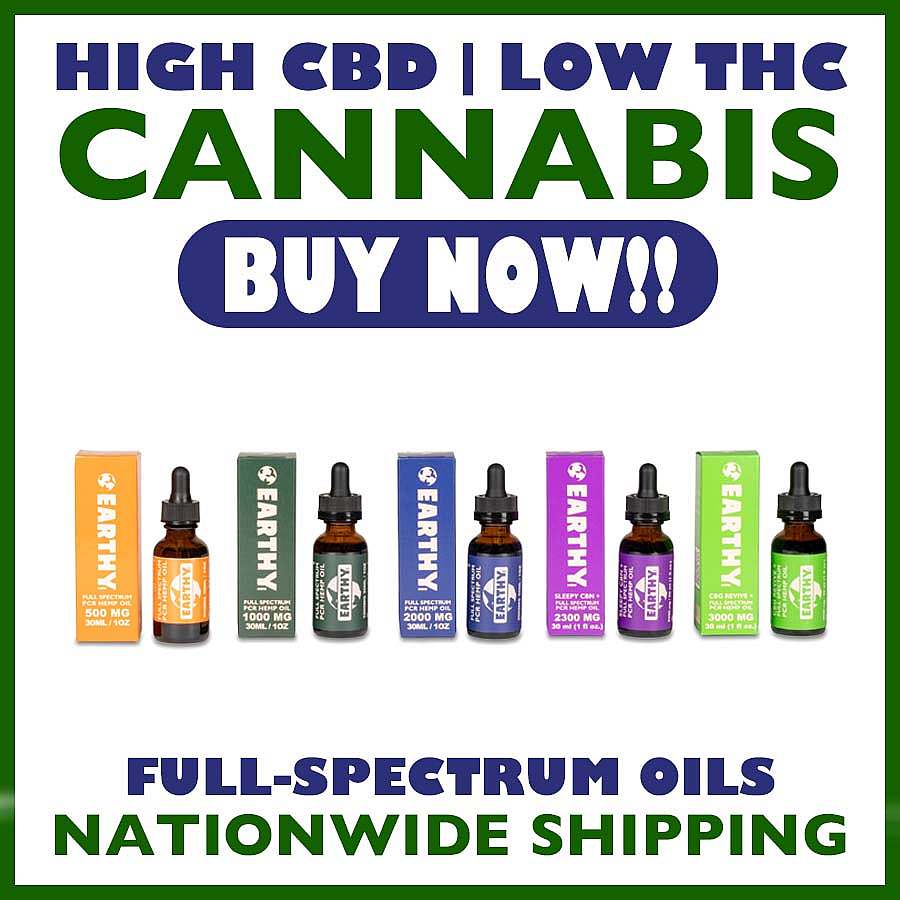Though there’s some controversy about whether the cannabinoid CBN can be mood-enhancing, there’s little doubt that it is federally compliant—thanks to the recent Farm Bills which allow for the widespread production, manufacture, and use of hemp products. That said, it’s important to know all the facts about the status of cannabinol (CBN) if you plan to partake in the joys of this popular cannabinoid.
For instance, if your CBN product contains less than 0.3% Delta-9 THC from hemp, you’re safe in most states in regard to its legal status because the product is federally compliant [1].
Still, there are other points to consider if you’re concerned about how CBN might make you feel or what may happen if you take a drug test. Read on to find out everything you need to know about the legality of CBN.
What is CBN?
The popularity of CBN has recently gained steam, appearing in cannabis products from oils to gummies. Though not yet as studied or as well-known as other cannabinoids such as CBD or THC, CBN offers its own host of attractions. One of the many compounds in the cannabis plant, CBN forms naturally when THC breaks down due to heat, air, or light exposure. This is why CBN is often found in cannabis that has been aged and stored for a period of time. Sometimes mildly mood-enhancing, CBN binds with more affinity to the CB2 cannabinoid receptors than with CB1 receptors.
These two well-characterized cannabinoid receptors seem to have distinct physiological properties, whereby CB2 deals more with psychoactive properties and CB1 more with other responses [2]. Notably, CBN doesn’t cause the intense intoxicating psychoactive effects associated with THC [3].
Learn more in the Guide to CBG and CBN
Benefits of CBN
Some preclinical research published recently suggests CBN may be therapeutic in several ways to animals, though data is scarce when it comes to human trials. For instance, a recent animal study encouraged researchers that CBN may have usefulness for humans, yet clinical studies have yet to test this theory [4].
Anecdotal reports additionally indicate that CBN may promote rest, but more research is needed to determine if this may be caused by CBN alone or in concert with other factors. Nonetheless, the chemical makeup of CBN may act synergistically with other cannabinoids and terpenes to cause this and/or other effects. These potential outcomes may relate to what is known as the entourage effect and may be related to the ways in which the cannabinoid interacts with the other compounds in the cannabis plant as they interact with the ECS [5].
What is the endocannabinoid system (ECS)?
Critical for almost every aspect of our functioning, the endocannabinoid system has a unique relationship with the cannabis plant [6]. While many of us have heard of chemical transmitter systems like the central nervous system, fewer have heard of the more recently discovered endocannabinoid system (ECS).
The body’s ECS affects our perceptions by activating a complex network of chemical signals and receptors that exist throughout the human brain and body. These cannabinoid receptors (including CB1 and CB2 receptors) are stimulated by cannabinoids: either endocannabinoids (made by our body) or phytocannabinoids (made from plants).
Each type influences our bodily functions by turning up or down neural activity and making adjustments about things like hunger, temperature, or alertness. CB1 receptors mediate most of the psychoactive effects of certain cannabinoids, whereas CB2 receptors are principally involved in anti-inflammatory and immunosuppressive responses [7].
In the ECS, our natural receptors get stimulated by its endocannabinoids: molecules that have a structural similarity to molecules in the cannabis plant. These tiny cannabis-like molecules float through our brains and bodies, affecting our sensations and perceptions.
Likewise, the effects of the cannabis plant occur when cannabis molecules (cannabinoids or phytocannabinoids) attach to our bodies’ ancient cellular machinery and engage with the cannabinoid receptors.
CBN is only one of the hundreds of cannabinoids in the cannabis plant that interact with the ECS when consumed [6].
How to Use CBN Oil: A Beginner’s Guide
Does CBN get you high?
CBN is basically a non-intoxicating cannabinoid. In essence, the effects of CBN are different and much milder than THC. Though it may be slightly mood-altering, CBN does not usually make a person feel “high.” Cannabis and hemp-derived THC, on the other hand, can be psychoactive. Even though CBN forms when THC degrades, most of its psychoactive properties vanish in the process.
The effects of both CBN or THC (as well as other cannabinoids) on a particular person will differ depending on a few things: dosage level, body weight, food or other substances in the system, and experience/tolerance level based on individual body chemistry [8].
How To Use CBN Gummies for Optimal Benefit
What does hemp-derived mean in regard to its legality?
The 2018 Farm Bill (see next section) established new federal legal definitions and rules for hemp. In short, the new definition of an acceptable “hemp-derived” product states that any part of the hemp plant is permissible under federal law, with certain exceptions: the hemp plant and “any part of that plant, including the seeds thereof and all derivatives, extracts, cannabinoids, isomers, acids, salts, and salts of isomers, whether growing or not, with a delta-9 tetrahydrocannabinol concentration of not more than 0.3 percent on a dry weight basis” may be used for production, sales, transport, and use.
Hemp plant derivatives include cannabinoids like CBN, CBD, Delta-8 THC, Delta-9 THC, and Delta-10 THC. These and other cannabinoids are federally compliant for use in myriad products when their percentages contain less than 0.3% THC [9].
Is CBN federally legal?
For many years in the U.S., cannabis was illegal according to federal law, whether or not it contained Delta-9 THC; the main psychoactive chemical that occurs naturally in the plant. In the 2010s, the United States Congress enacted two pieces of legislation called the Farm Bills.
These Bills recognized that hemp with very low Delta-9 THC concentration is distinct from higher-THC cannabis. In addition to the hemp plant, hemp extracts and hemp products, including CBN and THC isomers, are also allowed by the Farm Bills [9].
Thus, it is now abundantly clear that CBN products (as well as any other products derived from hemp that comply with the above stipulations) are legal under current federal law.
The Farm Bills and the resurgence of hemp farming
Hemp’s commercial resurgence came after the 2014 Farm Bill removed hemp from the Drug Enforcement Agency (DEA) list of Schedule 1 substances. The Bill made hemp federally legal and allowed long-forbidden research into hemp-derived cannabinoids to begin in earnest.
The 2018 Farm Bill expanded on this, allowing people to produce, sell, and consume hemp-derived products, making it clear to legal experts that all other plant materials and substances derived from legally-defined hemp (including cannabinoids such as CBD and CBN) are also federally-compliant [9].
Since then, federal legislation defines cannabis plants with less than 0.3% of Delta-9 THC per dry weight as hemp plants and allows hemp production and consumption in all 50 states. On the other hand, a plant with more than 0.3% Delta-9 THC per dry weight is defined as marijuana, which federal law still treats as a controlled substance on the DEA’s Schedule 1 list.
Nonetheless, many states now allow medical use and/or adult recreational use of marijuana containing much more than 0.3% Delta-9 THC. And the list is growing.
Hemp is not a controlled substance
The Farm Bill, drafted by the federal government, uses this definition:
Hemp–The term `hemp’ means the plant Cannabis sativa L. and any part of that plant, including the seeds thereof and all derivatives, extracts, cannabinoids, isomers, acids, salts, and salts of isomers, whether growing or not, with a delta-9 tetrahydrocannabinol concentration of not more than 0.3 percent on a dry weight basis [10].
Most states passed similar laws in the year or years following the Farm Bill’s enactment while adopting similar definitions of hemp. This resulted in the widespread commercialization of hemp products that are not considered controlled substances by the DEA at the federal level.
To learn more about hemp derived products, read the Guide to CBD.
The difference between full-spectrum and broad-spectrum
Full-spectrum cannabis products utilize all of the cannabinoids and compounds of the cannabis plant, including up to 0.3% THC per dry weight. The entourage effect is believed to be related to the complete panoply of cannabis compounds working together.
In contrast, broad-spectrum products contain some or all of the same compounds as full-spectrum products, except for the THC [11].
What is CBN distillate versus isolate?
CBN distillate is a distilled extract that contains high concentrations of CBN. While distillate is purer than a crude extract, it still includes some other cannabinoids, terpenes, and compounds that are naturally present in hemp flowers.
CBN isolate, in contrast, contains that particular cannabinoid only, excluding all of the other cannabinoids and compounds [12].
Does CBN show up on a drug test?
The last thing CBN users want is to fail a drug test when they’ve not consumed marijuana. A false positive result can create unnecessary problems related to employment or the ability to receive medication, or incarceration. The good news is, it’s unlikely that CBN will cause a false positive on a drug test. However, it’s important to educate yourself about these risks and tell your healthcare provider or employer if you take CBN products and are taking a drug test.
CBN may have a cross-reactivity in urinalysis tests to detect THC, yet the concentrations would have to be significant. Therefore, it is possible to receive a false positive result for THC in a drug screen if a substantial amount of CBN is consumed beforehand [13].
Key takeaway
Thanks to 2018 Farm Bill, CBN and other cannabis-derived compounds are legal for production and human consumption in most states as long as the product contains less than 0.3% Delta-9 THC per dry weight. However, for now it remains illegal under federal law to prescribe cannabis extracts for medical use [14].
So it is ever more important that millions have discovered the joys of hemp products—including the lesser-known CBN—since the passing of the Farm Bills freed hemp for all of us.
The Difference Between CBD, CBG, and CBN: Exploring Cannabinoids for Wellness
Medical Disclaimer / Legal Disclaimer – Information is provided for educational purposes. It does not and is not intended to constitute legal advice or medical advice. We attempt to be accurate and up-to-date, but the legality of cannabinoids and the science of cannabis are evolving. The author is neither a legal professional nor a medical expert. Before buying or using any products, you should check with your local authorities and medical providers.
References
- Is CBN Legal? What is CBN?
- Wikipedia: Cannabinol
- Forbes: What is CBN?
- Healthline: CBN vs CBD
- Wikipedia: Entourage Effect
- Harvard: The Endocannabinoid System: Essential and Mysterious
- CB1 and CB2 Cannabinoid Receptors in the Brain
- CBD and CBN: What’s the Difference?
- HIA Position Statement on Delta 8 and Hemp Cannabinoids
- Hemp Production and 2018 Farm Bill
- Full-Spectrum v Broad-Spectrum CBD FAQs
- CBN Comparison: Distillate vs Isolate
- Cannabinol Cross Reacts with Two Urine Immunoassays Designed to Detect THC Metabolite
- Are There Any States That Restrict CBD Products?





